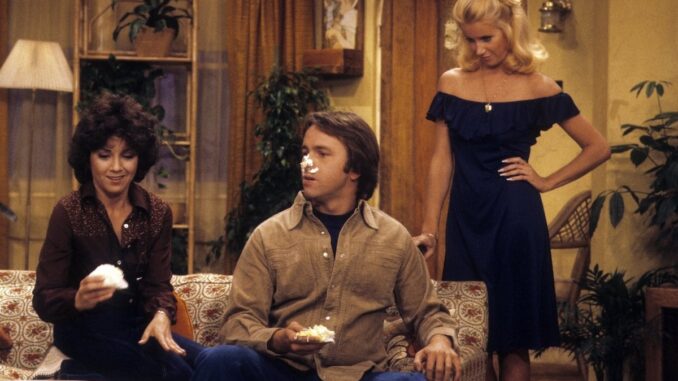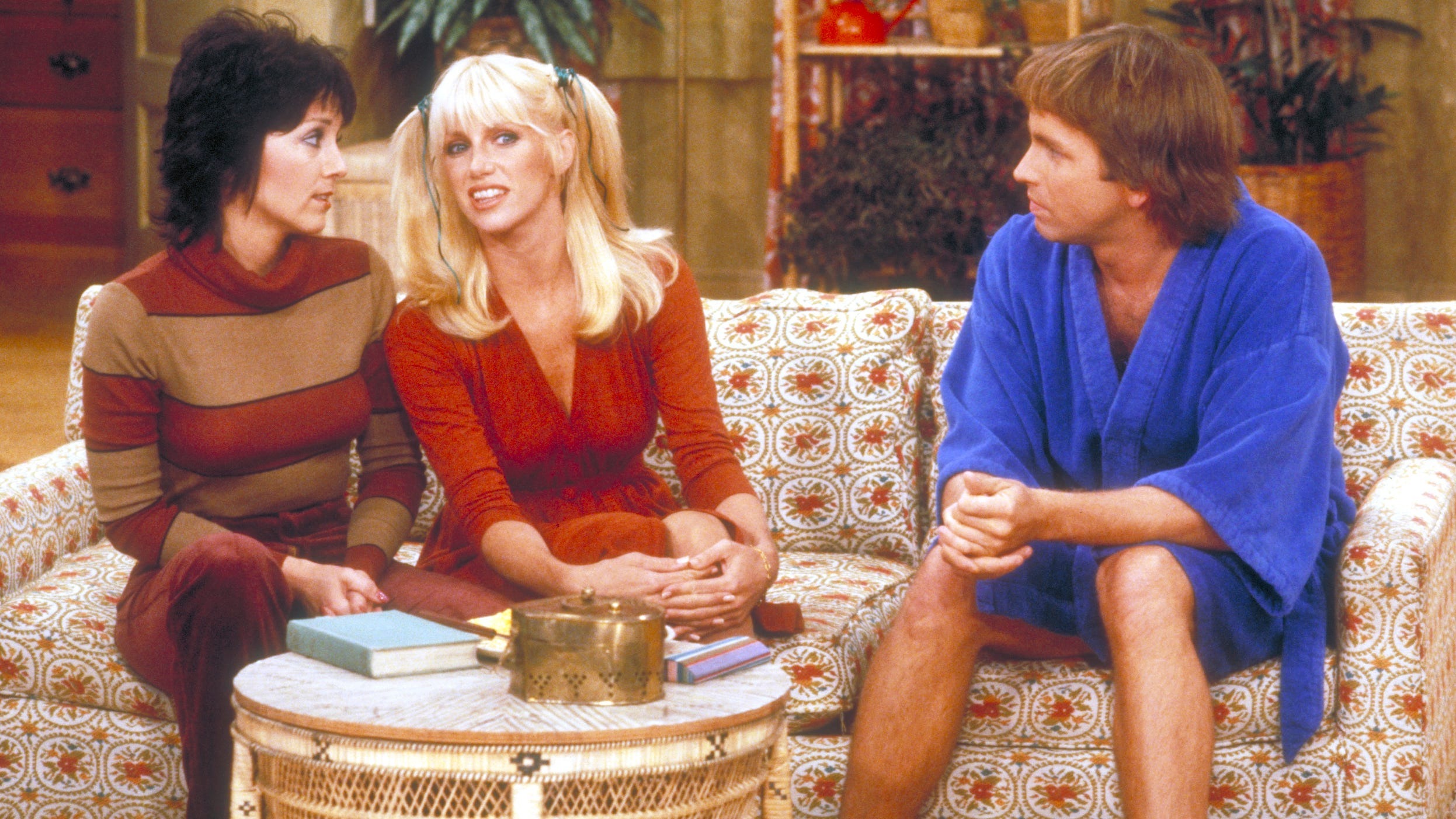
The Hidden Drama Behind the Classic Sitcom “Three’s Company”
Three’s Company isn’t just a staple of classic American sitcom television; it’s a treasure trove of hilarious antics, memorable characters, and yes — some pretty wild behind-the-scenes drama. Beneath the surface of the comedic misunderstandings and slapstick humor lies a tapestry of scandals, cast tensions, and production secrets that most fans have never heard.
If you think Three’s Company was just light-hearted fun from start to finish, think again. Let’s pull back the curtain on the controversies and secrets that shaped this beloved series and changed the course of TV history.
A Quick Overview of “Three’s Company”
What Made the Show a Cultural Phenomenon?
Premiering in 1977, Three’s Company followed the misadventures of three roommates—Jack, Janet, and Chrissy—living together under one roof in Santa Monica. Known for its risqué humor, misunderstandings, and a healthy dose of slapstick, the show captured America’s attention for eight seasons.
The chemistry between the actors and the clever writing propelled it to massive success, but behind the scenes, things weren’t always as harmonious as they seemed.
The Casting Controversy That Shook the Show
The Chrissy Snow Switch: From Suzanne Somers to Jenilee Harrison
One of the most infamous cast shakeups in sitcom history was the exit of Suzanne Somers, who played Chrissy Snow—the bubbly blonde who became the heart of the show.
Her departure wasn’t smooth. Rumors flew that Somers demanded a huge salary raise after the show’s popularity soared, but the producers balked. Negotiations broke down, and tensions escalated publicly.
The Fallout
Suzanne Somers claimed she was blacklisted and faced hostility from the production team, while producers maintained that her behavior was unprofessional and demanding.
She was replaced by Jenilee Harrison as Cindy Snow, Chrissy’s cousin, but many fans felt the magic was gone. This scandal sparked intense debates about fair pay and power dynamics in Hollywood that still resonate today.
Behind the Laughs: On-Set Feuds Among the Cast
John Ritter’s Relationship with Co-Stars
John Ritter, who played Jack Tripper, was widely loved on-screen and off. However, reports suggest that tensions sometimes flared, particularly with Joyce DeWitt (Janet Wood).
Though the trio appeared close on screen, some off-camera personality clashes led to moments of awkwardness and disagreements, especially as the show evolved and pressures mounted.
Joyce DeWitt’s Fight to Keep the Show Alive
Joyce DeWitt often spoke about battling behind the scenes to keep the show from being canceled during its later seasons. She also faced rumors about conflicts with both Ritter and Somers, although she always maintained a professional front.
The Producer Shake-Up That Changed Everything

Sherwood Schwartz’s Creative Control Battles
Sherwood Schwartz, the creator of Three’s Company, was known for his strict control over the show’s creative direction. However, as ratings climbed, network executives and producers began to clash with Schwartz over storylines and casting choices.
The Impact on Storytelling
Some believe the growing interference contributed to inconsistent character development and a shift in tone during the later seasons. This backstage power struggle impacted the show’s quality and longevity.
Sexual Harassment Allegations and Industry Pressures
The 1970s-80s Hollywood Culture
While no public allegations were ever directly linked to Three’s Company, insiders revealed that the show’s environment reflected a broader era of problematic behaviors in Hollywood, including gender power imbalances and inappropriate conduct behind the scenes.
Suzanne Somers Speaks Out Years Later
In interviews years after the show ended, Somers hinted at facing uncomfortable situations and being pressured to conform to certain “blonde bombshell” expectations that went beyond the script.
The Mystery of the Missing Episodes
Why Some Episodes Were Pulled From Syndication
Several episodes of Three’s Company were either edited heavily or pulled from syndication altogether due to content now considered outdated or offensive.
Topics That Didn’t Age Well
These included jokes involving gender stereotypes, LGBTQ+ themes portrayed insensitively, and some racial humor that today’s audiences find problematic. This decision sparked debates about censorship versus historical context.
The Real Story Behind Jack Tripper’s Cross-Dressing Gags
The Cultural Impact and Controversy
Jack Tripper’s frequent use of cross-dressing as a comedic device was groundbreaking at the time but also controversial. While audiences laughed, LGBTQ+ advocacy groups criticized the portrayal as reinforcing stereotypes.
Behind-the-Scenes Discussions
Cast and crew later admitted that the jokes were a product of their era, acknowledging they might handle the material differently today.
Untold Stories of Auditions and Casting Near-Misses
The Other Faces That Almost Played Jack and Janet
Did you know John Ritter wasn’t the first choice for Jack Tripper? Several other actors auditioned but didn’t land the role.
Similarly, other actresses almost played Janet Wood, including some who went on to successful careers elsewhere. These casting near-misses could have changed the show’s entire dynamic.
The Unexpected Impact of Network Censorship
How Censors Forced Creative Workarounds
Because Three’s Company frequently touched on risqué themes, network censors imposed strict limits on language, costumes, and jokes.
The Art of Suggestive Comedy
The writers cleverly used misunderstandings and innuendo to push boundaries without crossing the lines—a tactic that became a hallmark of the show’s humor.
Reunion Specials and What Really Happened Off-Camera
Cast Reunions Reveal Old Tensions and Fond Memories
Over the years, reunion specials have shown the cast reminiscing about good times and difficult moments. While some tensions remain visible, most agree the show was a life-changing experience.
Behind Closed Doors: How the Cast Really Felt
Interviews reveal mixed emotions—gratitude for the opportunity, frustration with certain producers, and longing for the camaraderie that faded with time.
The Influence of “Three’s Company” on Modern Sitcoms
Breaking Social Taboos With Humor
The show helped normalize living arrangements and social issues that were taboo in the late ’70s, paving the way for later sitcoms to tackle similar themes.
The Legacy of Physical Comedy
Its blend of verbal wit and slapstick set the standard for many shows that followed.
Final Season Struggles and the Show’s End
Ratings Decline and Cast Departures
As cast conflicts and creative changes took their toll, the show’s ratings dropped in the late ’80s.
The Decision to Cancel
Eventually, Three’s Company ended after eight seasons, leaving fans with mixed feelings but a lasting legacy.
Conclusion
Three’s Company was more than just a sitcom; it was a cultural phenomenon wrapped in laughs, love triangles, and classic misunderstandings. But behind its bright façade lay a complex web of scandals, cast drama, and creative battles that tested everyone involved. From Suzanne Somers’ infamous salary dispute to on-set tensions and network censorship, these behind-the-scenes stories reveal the reality of producing television magic under pressure.
Despite the turmoil, the show’s impact on comedy and social norms remains undeniable. As we laugh at Jack’s cross-dressing antics or Janet’s clever retorts, it’s worth remembering the resilience and creativity that made Three’s Company a timeless classic—scandals and all.
